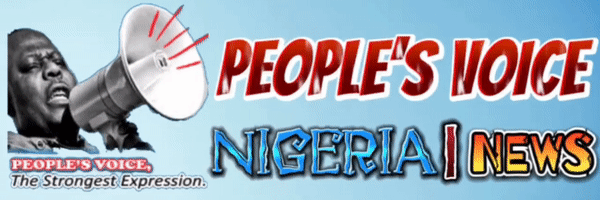Are PR Agencies Hiding the Full Picture? The Case for Independent Media Assessment
By: Philip Odiakose
The role of public relations has evolved into a crucial component for brand management, reputation building, and strategic communication. However, the growing complexity and stakes of PR activities necessitate an objective and impartial assessment of their outcomes. This is where independent PR monitoring, measurement, and evaluation become indispensable. The essence of this approach lies in its ability to mitigate biases and provide an accurate reflection of a brand’s media performance, competitive positioning, and market share.
Public relations professionals, consultants, and practitioners inherently possess a vested interest in the success of their strategies and campaigns. While this dedication is commendable, it can inadvertently lead to biased assessments of media performance. The analogy often drawn is that of a student grading their own exam papers – regardless of intent, objectivity is compromised. In the context of PR, this manifests in the potential overvaluation of successes and the underreporting of areas needing improvement.
To illustrate the necessity of independent evaluation, consider the case of a multinational corporation that engaged a renowned PR agency to manage its media relations and communication strategy. The agency delivered impressive results, or so it seemed based on their internal reports. However, when an independent PR measurement and evaluation consultant was brought in, a different picture emerged. The consultant’s assessment revealed that while the PR agency had successfully generated significant media coverage, the sentiment of the coverage was not as positive as reported. Furthermore, competitors had garnered more favorable media attention, positioning them better in the market. This independent analysis enabled the corporation to recalibrate its PR strategy, focusing on addressing the gaps and realigning its media engagement efforts.
Similarly, a major telecommunications company in Nigeria faced a dilemma when its in-house PR team reported stellar media performance metrics. The company’s leadership, seeking validation, engaged an independent PR auditor to verify these claims. The audit uncovered discrepancies between the reported PR data and the actual media performance. It highlighted that while the volume of media mentions was high, the company’s share of voice was overshadowed by competitors. This independent evaluation provided the leadership with a clearer understanding of their true media standing, enabling more strategic decision-making.
These case studies underscore the critical importance of unbiased PR measurement. An independent PR measurement and evaluation auditor or consultant brings a fresh perspective devoid of any attachment to the campaign’s execution. Their sole objective is to provide an accurate, comprehensive, and unbiased assessment of a brand’s media performance. This objectivity ensures that brands receive an honest appraisal, highlighting both strengths and areas for improvement without any vested interest.
Furthermore, independent PR measurement and evaluation foster a culture of continuous improvement. When PR professionals receive unbiased feedback, they are better positioned to refine their strategies, learn from past campaigns, and innovate. This cycle of continuous improvement is crucial for maintaining a competitive edge in the ever-evolving media landscape.
Engaging an independent PR measurement and evaluation consultant is not an indictment of the capabilities of PR professionals. Rather, it is a recognition of the need for specialized expertise and impartiality in assessing media performance. Just as financial audits are conducted by independent auditors to ensure accuracy and transparency, PR audits serve a similar purpose. They provide external validation that enhances the credibility and reliability of media performance reports.
In the Nigerian context, where the media landscape is rapidly expanding and diversifying, the role of independent PR measurement is even more critical. Brands are increasingly leveraging multiple media platforms to reach their target audiences, and the complexity of tracking and evaluating these efforts necessitates an unbiased approach. Independent evaluators bring the expertise required to navigate this complexity, providing brands with actionable insights and strategic recommendations.
The creation of a Media Monitoring Association in Nigeria, as previously advocated, would further bolster the credibility and standardization of PR measurement practices. Such an association could set industry-wide benchmarks, establish ethical guidelines, and promote best practices. It would also facilitate the development of a pool of certified independent PR measurement professionals, ensuring that brands have access to qualified experts for their evaluation needs.
In conclusion, independent PR measurement and evaluation are indispensable for brands seeking to understand their true media performance and competitive positioning. By removing biases and providing an objective assessment, independent evaluators enable brands to make informed, data-driven decisions. This, in turn, fosters a culture of transparency, accountability, and continuous improvement within the PR industry. As the media landscape continues to evolve, the importance of independent PR measurement will only grow, making it a critical component of any comprehensive PR strategy.
Philip Odiakose is a leader and advocate of Media Monitoring, PR measurement and evaluation in Nigeria. He is also the Chief Media Analyst at P+ Measurement Services, a member of AMEC Are PR Agencies Hiding the Full Picture? The Case for Independent Media Assessment
The role of public relations has evolved into a crucial component for brand management, reputation building, and strategic communication. However, the growing complexity and stakes of PR activities necessitate an objective and impartial assessment of their outcomes. This is where independent PR monitoring, measurement, and evaluation become indispensable. The essence of this approach lies in its ability to mitigate biases and provide an accurate reflection of a brand’s media performance, competitive positioning, and market share.
Public relations professionals, consultants, and practitioners inherently possess a vested interest in the success of their strategies and campaigns. While this dedication is commendable, it can inadvertently lead to biased assessments of media performance. The analogy often drawn is that of a student grading their own exam papers – regardless of intent, objectivity is compromised. In the context of PR, this manifests in the potential overvaluation of successes and the underreporting of areas needing improvement.
To illustrate the necessity of independent evaluation, consider the case of a multinational corporation that engaged a renowned PR agency to manage its media relations and communication strategy. The agency delivered impressive results, or so it seemed based on their internal reports. However, when an independent PR measurement and evaluation consultant was brought in, a different picture emerged. The consultant’s assessment revealed that while the PR agency had successfully generated significant media coverage, the sentiment of the coverage was not as positive as reported. Furthermore, competitors had garnered more favorable media attention, positioning them better in the market. This independent analysis enabled the corporation to recalibrate its PR strategy, focusing on addressing the gaps and realigning its media engagement efforts.
Similarly, a major telecommunications company in Nigeria faced a dilemma when its in-house PR team reported stellar media performance metrics. The company’s leadership, seeking validation, engaged an independent PR auditor to verify these claims. The audit uncovered discrepancies between the reported PR data and the actual media performance. It highlighted that while the volume of media mentions was high, the company’s share of voice was overshadowed by competitors. This independent evaluation provided the leadership with a clearer understanding of their true media standing, enabling more strategic decision-making.
These case studies underscore the critical importance of unbiased PR measurement. An independent PR measurement and evaluation auditor or consultant brings a fresh perspective devoid of any attachment to the campaign’s execution. Their sole objective is to provide an accurate, comprehensive, and unbiased assessment of a brand’s media performance. This objectivity ensures that brands receive an honest appraisal, highlighting both strengths and areas for improvement without any vested interest.
Furthermore, independent PR measurement and evaluation foster a culture of continuous improvement. When PR professionals receive unbiased feedback, they are better positioned to refine their strategies, learn from past campaigns, and innovate. This cycle of continuous improvement is crucial for maintaining a competitive edge in the ever-evolving media landscape.
Engaging an independent PR measurement and evaluation consultant is not an indictment of the capabilities of PR professionals. Rather, it is a recognition of the need for specialized expertise and impartiality in assessing media performance. Just as financial audits are conducted by independent auditors to ensure accuracy and transparency, PR audits serve a similar purpose. They provide external validation that enhances the credibility and reliability of media performance reports.
In the Nigerian context, where the media landscape is rapidly expanding and diversifying, the role of independent PR measurement is even more critical. Brands are increasingly leveraging multiple media platforms to reach their target audiences, and the complexity of tracking and evaluating these efforts necessitates an unbiased approach. Independent evaluators bring the expertise required to navigate this complexity, providing brands with actionable insights and strategic recommendations.
The creation of a Media Monitoring Association in Nigeria, as previously advocated, would further bolster the credibility and standardization of PR measurement practices. Such an association could set industry-wide benchmarks, establish ethical guidelines, and promote best practices. It would also facilitate the development of a pool of certified independent PR measurement professionals, ensuring that brands have access to qualified experts for their evaluation needs.
In conclusion, independent PR measurement and evaluation are indispensable for brands seeking to understand their true media performance and competitive positioning. By removing biases and providing an objective assessment, independent evaluators enable brands to make informed, data-driven decisions. This, in turn, fosters a culture of transparency, accountability, and continuous improvement within the PR industry. As the media landscape continues to evolve, the importance of independent PR measurement will only grow, making it a critical component of any comprehensive PR strategy.
Philip Odiakose is a leader and advocate of Media Monitoring, PR measurement and evaluation in Nigeria. He is also the Chief Media Analyst at P+ Measurement Services, a member of AMEC


